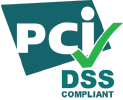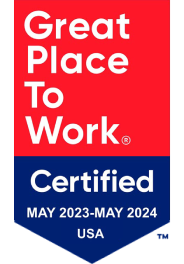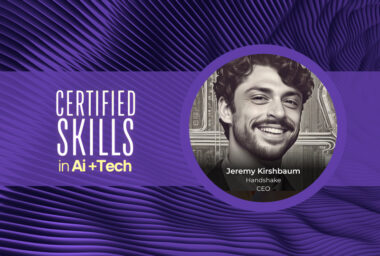In the most recent episode of our Certified Skills in AI and Tech Podcast, Subhan Ali, Product Lead at NVIDIA, takes us through a deep dive into the transformative world of Artificial Intelligence. As AI reshapes industries and redefines our potential, Subhan shares his personal excitement and professional forecasts for what the future holds. From the revolutionary impact of ChatGPT to the essential skills for thriving in an AI-driven landscape, discover how to navigate and grow in this rapidly evolving field. Join us as we explore practical strategies for leveraging AI and learn why now, more than ever, is the time to embrace technological change.
You work for probably one of the companies that’s mostly on people’s minds when it comes to AI, generative AI technology. You know, just from a personal standpoint, how excited are you about AI and the future of AI?
Very excited. I’ve been in this field for roughly 9 years this year and I think it always felt like this is where the future was going. It was kind of obvious to me, but I think with most things in life, you kind of underestimate the potential upside. And you know, the ChatGPT moment happened roughly, you know, 15 to 18 months ago and I think everyone else began to realize what the potential was here. And so I think the future is bright. We’re still early and, you know, I have a lot of optimism about where things are going.
Prior to ChatGPT, a few years ago, you know people probably wouldn’t have imagined what AI could actually do, the perception in general was that it was a very small subset of computer science and was really a research sort of thing that didn’t have applications to most people in their daily lives. And I think ChatGPT changed the reference frame and that people understood that they could actually interact with technology in a very regular, normal, casual way that did not involve the lift or the know-how that people associated with it. And so I think, I think it just really changed the framing and changed the relatability of the technology in a way that nothing had before.
Adapting to AI’s Expanding Needs
Have the amount of skills you need for AI expanded and what would you say are the core skills needed to understand AI?
I think it’s probably really useful to know where in the stack you want to operate and what you’re doing. So I think if you are a person who wants to train a foundation model, which there are a number of people doing that today, it’s still pretty technical and that’s not a cookie cutter sort of thing. If you are an organization that wants to leverage someone else’s foundation model, it’s slightly more straightforward but still involves some level of ability to program and build an engineering solution. And then I think where things are increasingly going is in the direction of no code or where ALLM could build a product or launch components of our product without a lot of technical know-how from the input user. I don’t think we’re quite there today but it’s pretty clear that that will probably happen in the near future. So I’d say it’s really useful to understand where you want to operate and what’s ultimately going to provide a return for your company, your bottom line, and your users. As we think about that from the larger level or broader level and take it more specific.
Enhancing Products with AI
What’s the impact of AI in what you’re doing and supporting that whole process of making your products better, making their products better, making the synergy work together?
The way I would frame it in general is I think everyone is kind of in the, I would say, most of last year people were in the very curious phase and were trying to figure out what to do with this, but didn’t quite know. I think right now we’re kind of in a build phase, at least as it relates to most large enterprises. And ultimately kind of in the near future, we’re probably going to enter what I would call a production phase where you should see a lot of these things that people have been building be deployed to extremely large user bases and stuff like that. So examples of that that have already happened are definitely GitHub Copilot, but also Microsoft has released their Copilot product as well. And I think we’ll see a lot more of that in the next year or two. So I think ultimately it’s going to come down to these products you’re going to have to go into the wild and they’re going to have to collect a large amount of user feedback to figure out, OK, where’s it providing value, where’s it not providing value? What does that look like? And so that feedback loop of user input is going to be critical towards dramatically improving how people are getting value out of the dominant technology. And so the more that you can do that, I think the more that’s going to be a competitive advantage for anybody building in this space.
Evaluating AI Knowledge Across Sectors
Do you find as you’re working with some of your partners that they have enough knowledge to take advantage of AI?
I mean I think generally I’ve worked with partners that are considered high technology companies. And so those are people who have been at the leading edge of this to begin with and probably more saw this coming than in other verticals. But I think in other verticals, it’s still really early. So you talk about things like manufacturing or industrial applications or retail applications. There are folks in each of those areas that have been ahead of the curve. But I would say that the vast majority of companies in those verticals are, are still just beginning to realize what they need to do in order to figure out where they’re going to go. So it’s still really early days because there’s a lot of obviously interest in AI right now. There’s a lot of interest in GPUs and accelerated computing across the board. But GPUs are very sophisticated pieces of equipment and they are not like a coin-operated toaster; you can’t just plug it in and expect it to work. So getting to that level of expertise for a lot of teams and companies is going to be a process and we’re still very early in that process for the majority of companies and large enterprises out there.
I think we’re still scratching the surface in terms of people being able to fully leverage all of the features of what’s going on. And I think if you think about even the story of NVIDIA, we started out more than 30 years ago building GPUs for gaming applications. And then we started getting into the enterprise and it wasn’t completely clear where it was going with applications in visualization and other graphical applications. But we started hearing and seeing murmurs of researchers using GPUs to perform computations on neural networks. But I think the really big aha moment came with Alexnet in 2012 and that’s when we began to realize there’s probably something here more than we may have realized. And it’s really an evolution in our process and the craziest part is we’re still early like it’s still really early and there’s so much Greenfield ahead because it’s one of those things where I thought the opportunity was big and growing when I started in this field and the longer I’m in it the more I think how much larger it is than what I initially thought.
Navigating the Tech Landscape
When you think about the average person who works in tech- Is there a baseline of AI knowledge and skills that you should acquire?
I mean, again, it just comes back to where do you want to operate in the stack. If you want to be a person who trains foundation models, that’s a pretty tall order. If you want to work with another foundation model provider through APIs, then traditional software engineering skills might be sufficient. What I would encourage people to do is to really begin to play with the technology and just understand what it’s capable of and how it can augment your life and your workflow. The biggest thing you can do is play with these chatbots, figure out what they’re capable of doing, and learn how to write prompts that yield useful results. Prompt engineering is becoming an art form, not just a science. Those who can skillfully craft prompts to guide LLMs to produce valuable outputs will likely have an advantage in the future. So the more you understand this, the more prepared you will be to use this technology in your own products, your company, or your workflow. The person who masters this skill will have a significant advantage over those who don’t.
If you had one takeaway message for the world about AI, what would it be?
I think my takeaway would be that we’re still really early in all of this and generally, people are probably overestimating what can happen in the next year but underestimating what can happen in the next 5 or 10 years. Where we’re going to end up in the next decade is probably in a much more valuable place. Despite all the talk about AI taking away jobs, I think that fear is dramatically overblown. I wouldn’t worry about AI itself taking away jobs; I’d be more concerned about someone using AI to do so. There have always been fears about new technologies, like computers in the 90s or self-driving cars recently, but these technologies have tended to augment human capabilities rather than replace them. Similarly, AI should enhance our ability to perform more interesting and meaningful work, freeing us from mundane tasks. Embracing this change will be beneficial for everyone.
Kryterion’s Approach to AI-integrated Test Development and Delivery
At Kryterion, we clearly see the opportunities and disruption that AI is bringing to our industry. Our top priority is to provide clients with the best mix of security, innovation, service, and value in our tools for test development and delivery. AI is quickly becoming an integral technology in our products and direction. The path we are on with AI encompasses the immediate benefits it provides while maintaining a sharp awareness of its evolution allowing us to ensure our products continue to meet or exceed the needs of our clients.
Please contact us to set up a meeting so we can further discuss how important AI is to our future and our clients.
Want to keep up with insights on AI in the testing industry? Listen to the Kryterion podcast






